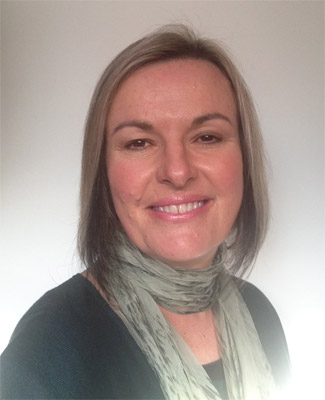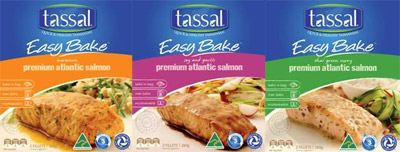Ngaire Hobbins Salmon in Winter Interview

Ngaire Hobbins Salmon in Winter Interview
As we head into the winter months the cold weather, lack of sunlight and dehydrating heating can all play havoc on our skin. It's the season of dull hair, lacklustre lips and dry skin. But if it feels like your summer glow has gone into permanent hibernation, don't despair.
There is a connection between our diet and the health of our skin. Certain ailments can be ameliorated by making sure you eat the right balance of foods. The good news is if you eat the right foods you will see the benefits in your skin.
With the winter season well and truly upon us you can get the best results for your skin during this time through your diet and more specifically through superfoods like Tassal Tasmanian Atlantic Salmon.
Head to www.tassal.com.au/recipes and www.femail.com.au/lowfatrecipes for delicious and easy Salmon Recipes.
Six Ways to Easier Mid-Week Mealtimes
Australia's largest Atlantic salmon producer, Tassal, has launching six exciting new flavours into its Easy Bake range; Teriyaki, Soy & Garlic, Moroccan, Lemon & Cracked Pepper, Sundried Tomato & Basil and Thai Green Curry.
The salmon portions, found in the freezer aisle, are joining current favourites including Natural and Herb Butter & White Wine, which were introduced into Woolworths from June last year.
The convenient range allows customers to take their fish straight from the freezer and bake in the bag in a pre-heated oven for 20-25 minutes or in the microwave for three minutes. Simply served with a side of rice or potatoes and seasonal veg, the Easy Bake range offers the perfect solution to quick and healthy mid-week dinners for the whole family.
Loaded with Omega-3, vitamins A, D, E, B-carotene, minerals, zinc and iron, and with a new pack design, the product now shouts even louder about its health benefits and sustainability credentials.
As the first salmon producer in Australia to be accredited with the Best Aquaculture Practice certification at farm level by the Global Aquaculture Alliance, Tassal has been recognised for its efforts in food safety, social welfare, animal welfare and overall sustainable practice. The BAP logo is now clearly displayed on Easy Bake packs to give customers a greater understanding of how their food is sourced and produced.
Tassal spokesperson, Caroline Hounsell says, 'We know the demands and strains of everyday life can take their toll on our diets, especially during the week when cooking after work, school runs or evening activities can become a real chore.
'Tassal's Easy Bake range not only offers a quick and easy mealtime solution, but also a nutritious and sustainable option that's suitable for the whole family. With six new flavours there's something for everyone's tastes, no matter how fussy the eaters are around your table."
All six new flavours will be launching this week in Woolworths, alongside Easy Bake Natural, and Herb Butter & White Wine.
Easy Bake Natural, Teriyaki, Lemon & Black Pepper, Sundried Tomato & Basil and Herb Butter & White Wine all have an RRP of $9.99
Tassal is the largest producer and processor of fresh and frozen salmon products in Australia and is within the top 30 salmon companies in the world. It employs more than 700 people (particularly in regional areas of Tasmania) and makes constant investments in infrastructure to drive sustainable growth.
Since opening its marine sites in 1986, Tassal has grown from a privately-owned operation to a major public company listed on the ASX.

Interview with Ngaire Hobbins, APD – Dietitian and Nutritionist
Question: Is salmon a superfood? If so, why?
Ngaire Hobbins: -Superfood' is a term used to describe a food which is naturally rich in a variety of essential vitamins and minerals, so that it has health benefits which position it over and above other foods.
Question: What are superfoods?
Ngaire Hobbins: Salmon is considered to be one of nature's superfoods as it's a rich source of Omega 3, and other nutrients including protein, zinc and vitamin D. Just two serves per week provides the recommended intake of Omega 3 which research has shown is particularly good for your heart, your skin and your immune system.
Question: Why is salmon so good for us?
Ngaire Hobbins: Atlantic salmon, grown in the pristine waters of Tasmania, is one of our richest naturally occurring sources of Omega-3 fatty acids.
It's also quite unique among foods as it's high in vitamin D - few other foods contain this vitamin which is important for your bones, but is also believed to help with prevention of cancer and depression.
Salmon also contains a range of B vitamins and the minerals calcium, copper, iron, magnesium phosphorus, potassium, selenium and zinc – all of which are vital ingredients in a healthy balanced diet!
Question: How often should we consume salmon or other oily fish?
Ngaire Hobbins: Australian Dietary Guidelines advise we eat at least two fish-based meals per week as part of a healthy balanced diet.
Question: What are the main skin benefits we'll see if we consume salmon in the winter months?
Ngaire Hobbins: When we eat oily fish such as salmon we load up on essential fatty acids including Omega 3, helping our skin maintain moisture. These, along with the variety of antioxidants salmon contains, help protect our skin from whipping winter winds and drying central heating.
Question: How does salmon help our Vitamin D levels during the cooler months?
Ngaire Hobbins: The UV light from the sun fast tracks the ageing of our skin by affecting collagen, which reduces elasticity, causing lines.
As a result any sensible woman nowadays should be avoiding the sun if they want good skin. But less exposure to sun means your body makes less vitamin D - a big problem for your bones, your skin and many body systems.
In winter especially, with shorter days and much more time spent inside, any food which can supply vitamin D is of great benefit. Fortunately oily fish, like salmon, is one of the best natural sources of this vitamin which is not found in many other foods. In fact, one portion of Tassal Atlantic salmon (150g) contains 8mcg (or more than 300 IU) of vitamin D, which is over half of the recommended daily intake for adults.
Question: How can we incorporate salmon into our diets?
Ngaire Hobbins: Salmon is an incredibly versatile and delicious food we can enjoy in a number of very easy ways from fresh to smoked, canned or frozen. Whether cooking on the barbecue or grill, oven-baking, pan-frying or steaming, you can find a huge selection of breakfast, lunch, dinner and snack recipe ideas on Tassal's website
For a super-easy dinner, Tassal has just introduced six new flavours into its Easy Bake range. This convenient range allows you to take fish straight from the freezer and bake in the bag in a pre-heated oven for 20-25 minutes or in the microwave for three minutes. Serve with a side of rice or potatoes and seasonal veg for a quick and healthy mid-week dinner.
Question: Why is it so important to get these nutrients from food such as salmon rather than tablets?
Ngaire Hobbins: Although supplements are recommended to many people, science doesn't have all the answers yet about nutrients and health.
Foods contain lots more than just the vitamins or minerals that supplement tablets you can buy do: it might be that relying on tablets means you miss out on something really important that you can only get from food. Until science does have more answers, eating nutrients in the way nature provided them – in food, not tablets – has to be a good idea.
Question: What other foods should we increase in the winter months?
Ngaire Hobbins: Zinc is a micronutrient synonymous with healthy skin. If you don't get enough, your skin becomes dry and rough and will heal more slowly than it should. Luckily fish like salmon, red meats, shellfish, poultry and eggs are all great sources, so there is no need to miss out.
Salmon is almost unique when it comes to vitamin D – it's naturally high in this vitamin. Only other oily fish like sardines and mushrooms which have had some exposure to sun or UV light during their production come close. There are smaller amounts naturally occurring in eggs and butter too and it's added to some margarines and milks, but salmon is certainly a superfood when it comes to this vitamin.
Question: What inspired your career as a Dietitian and Nutritionist?
Ngaire Hobbins: Food was, and is my inspiration.
I strive to help people enjoy the fabulous variety of great food Australia has to offer, guiding them to make choices that help them get the health benefits that different foods offer.
Sharing meals is one of life's great pleasures – I want people to live long and healthy lives being able to do that.
Interview by Brooke Hunter
MORE



